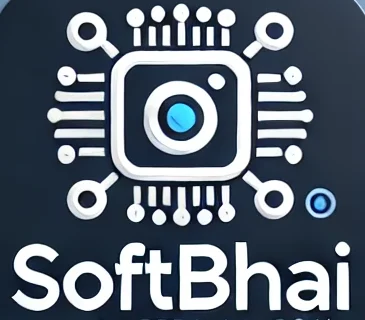1. Understanding Direct Examination and AI’s Role
Direct examination is the process where an attorney questions their own witness in court. The goal is to present facts clearly and build a strong case. AI tools like ChatGPT can help legal professionals draft precise and effective questions. By using well-structured prompts to have AI draft direct examination questions, lawyers can ensure clarity, relevance, and compliance with legal standards. This technology saves time and enhances accuracy when preparing for trial.
AI-generated prompts can help create well-organized direct examination questions. These questions guide the witness in presenting relevant facts without leading them to a specific answer. AI assists in refining these prompts, making them more efficient for courtroom use.
2. Key Elements of Effective Direct Examination Questions
The effectiveness of direct examination questions depends on how they are framed. Lawyers should ensure that questions are clear and easy to understand. AI-generated questions must align with legal standards and avoid ambiguity.
There are two primary types of questions used in direct examination:
- Open-ended questions allow the witness to provide detailed responses.
- Closed-ended questions require specific answers and help establish facts.
AI tools can generate both types of questions, ensuring they remain neutral and fact-based. The right prompts allow lawyers to guide witnesses without influencing their responses.
3. Best AI Prompts for Generating Direct Examination Questions
Using AI to draft direct examination questions requires precise prompts. The better the input, the more relevant the AI-generated output will be. Here are some effective prompts:
- “Generate questions to establish the timeline of events from a witness’s perspective.”
- “Create questions to confirm an eyewitness’s observations about a crime scene.”
- “Draft questions for an expert witness explaining forensic evidence in a case.”
These AI-generated prompts help attorneys focus on key details while keeping questions fair and neutral. By refining these prompts, lawyers can create a solid foundation for witness testimonies.
4. Enhancing Accuracy: Refining AI-Generated Questions
AI tools are powerful, but they require human oversight. Legal professionals should refine AI-generated questions to avoid inaccuracies. Ensuring clarity and relevance is essential when preparing for court.
When using AI for legal preparation, it’s crucial to craft effective prompts to have AI draft direct examination questions that align with courtroom standards.
One effective strategy is simplifying complex legal concepts. AI-generated questions should break down legal jargon into easy-to-understand terms. Additionally, removing any bias in AI-generated prompts ensures that questions remain objective. Attorneys should always review and adjust AI-generated questions before using them in court.
5. Using AI for Different Types of Legal Questions
AI can generate various types of legal questions, making it a valuable tool for attorneys. Some common types include:
- Fact-based questions establish details like dates, times, and locations.
- Hypothetical questions help witnesses explain possible scenarios.
- Clarification questions ensure that the witness’s statements are fully understood.
These AI-generated questions assist lawyers in building a strong case by covering all necessary details. Using different question types ensures that no important information is overlooked.
6. AI-Powered Study Guides & Legal Preparation
AI can also assist legal professionals in study preparation. Creating a structured study plan helps attorneys and law students review important legal concepts efficiently. AI can generate flashcards, case summaries, and sample examination questions.
By using AI-generated study guides, lawyers can improve their understanding of direct examination strategies. AI tools help simplify legal concepts, making them easier to memorize and apply in real-world cases.
7. Cross-Examination vs. Direct Examination: AI-Powered Prompts
While direct examination focuses on presenting facts, cross-examination aims to challenge the witness’s credibility. AI can differentiate between these types of questions to ensure effective courtroom preparation.
For direct examination, AI-generated prompts focus on clarity, fact-based questioning, and neutral language. In contrast, cross-examination prompts aim to highlight inconsistencies, contradictions, and witness credibility issues.
By using AI for both types of questioning, legal professionals can ensure thorough trial preparation. This allows attorneys to anticipate possible challenges during cross-examination.
8. Future of AI in Legal Questioning: Challenges & Opportunities
AI is transforming the legal field, making case preparation more efficient. However, it is important to acknowledge its limitations. AI cannot replace human judgment and ethical considerations must be taken into account.
One challenge is ensuring that AI-generated questions meet legal standards. Attorneys must review AI-generated content to prevent errors. Another challenge is maintaining confidentiality when using AI tools in legal research.
Despite these challenges, AI presents significant opportunities for legal professionals. By integrating AI into legal questioning, attorneys can save time, improve accuracy, and enhance courtroom strategies.
FAQs
The drafting of legal questions through AI systems needs human supervision to guarantee correctness along with maintaining compliance with legal guidelines.
The use of AI technology produces clearer question structures that reduces any potential confusion and eliminates discriminatory elements. The tool reduces time requirements during direct question planning.
Muslim lawyers find “Draft questions to establish a witness’s timeline of events” and “Generate questions for an expert explaining evidence” to be exceptionally beneficial prompts.
While AI produces a solid starting point lawyers need to check both the factual accuracy and legal compliance of AI-generated content.
AI technology creates educational assets which includes examination study documents and memory aids with practice examination test questions to strengthen legal professional performance.

